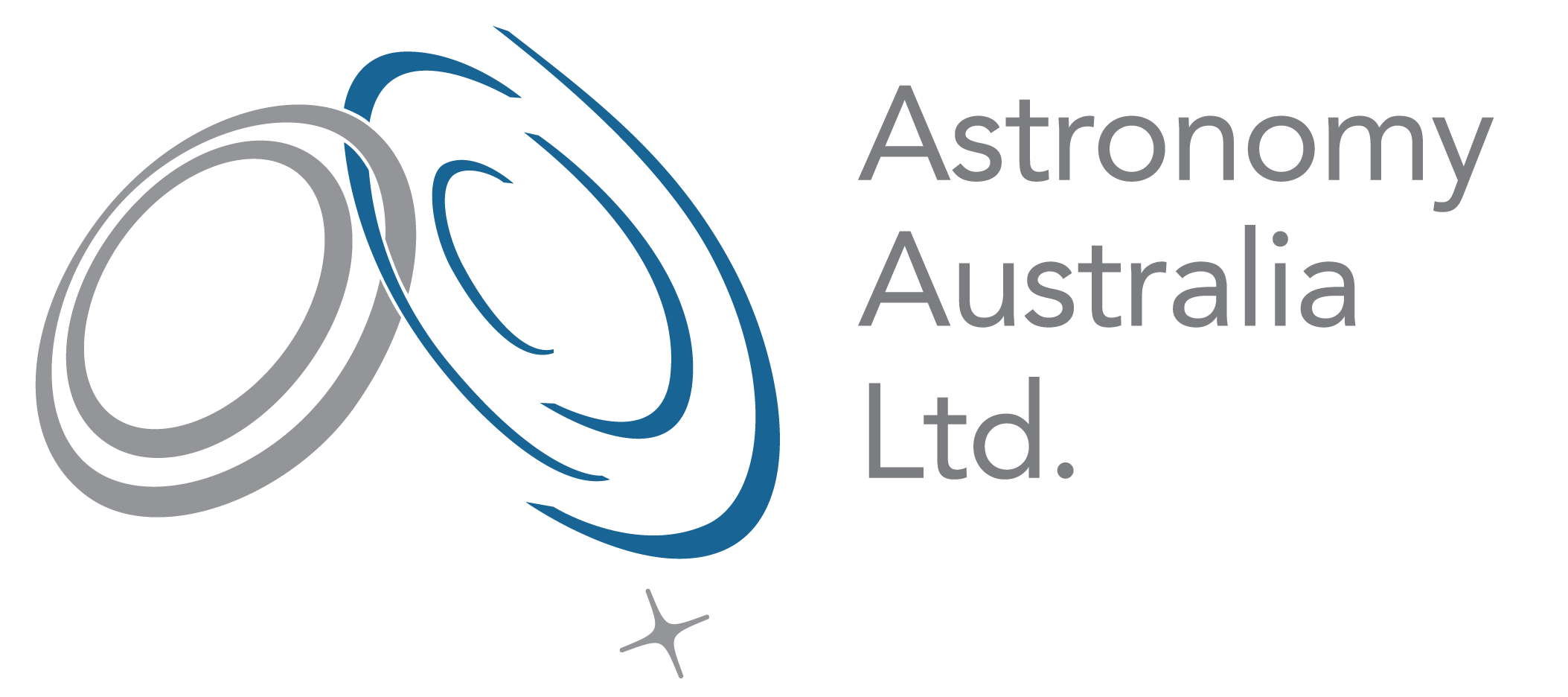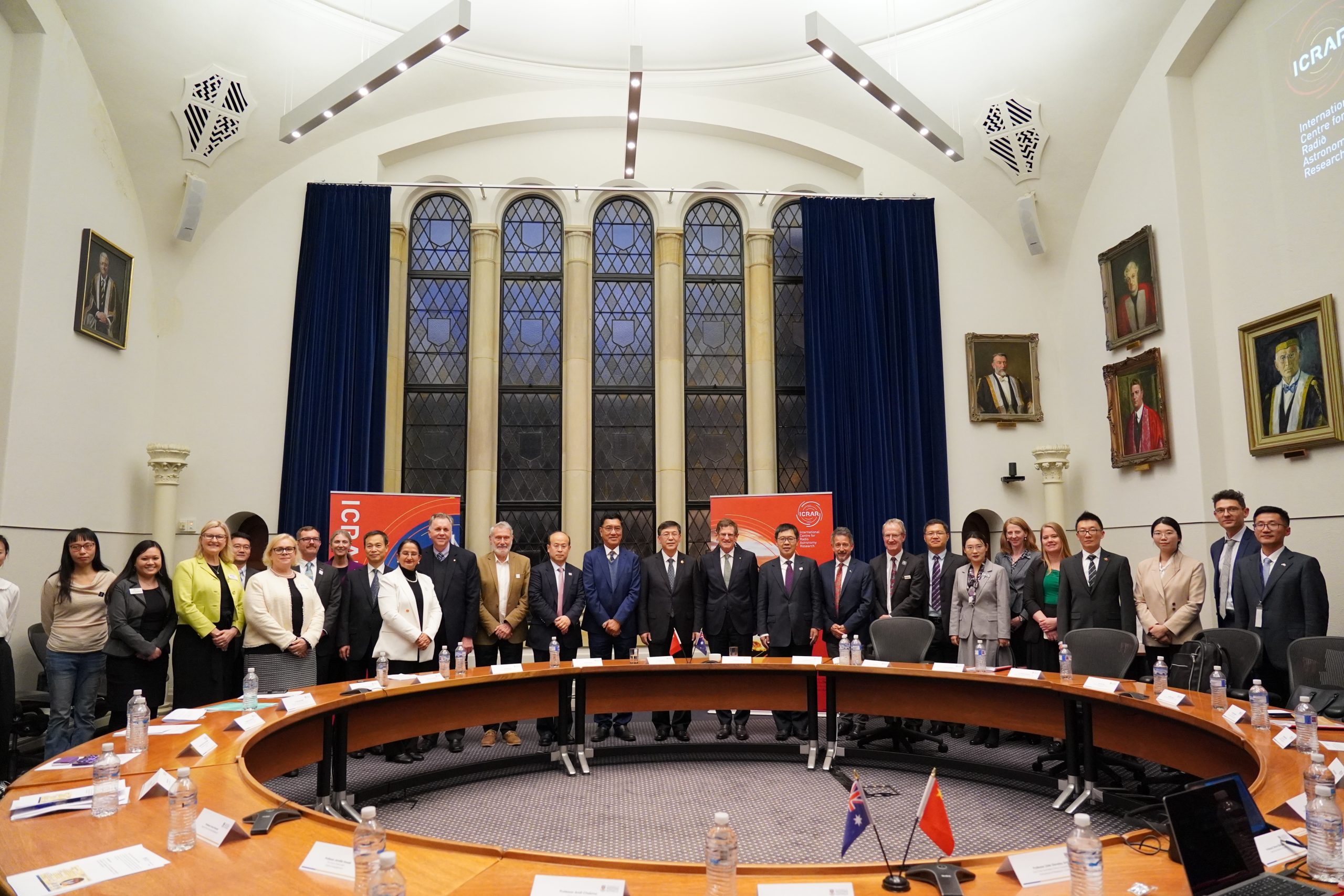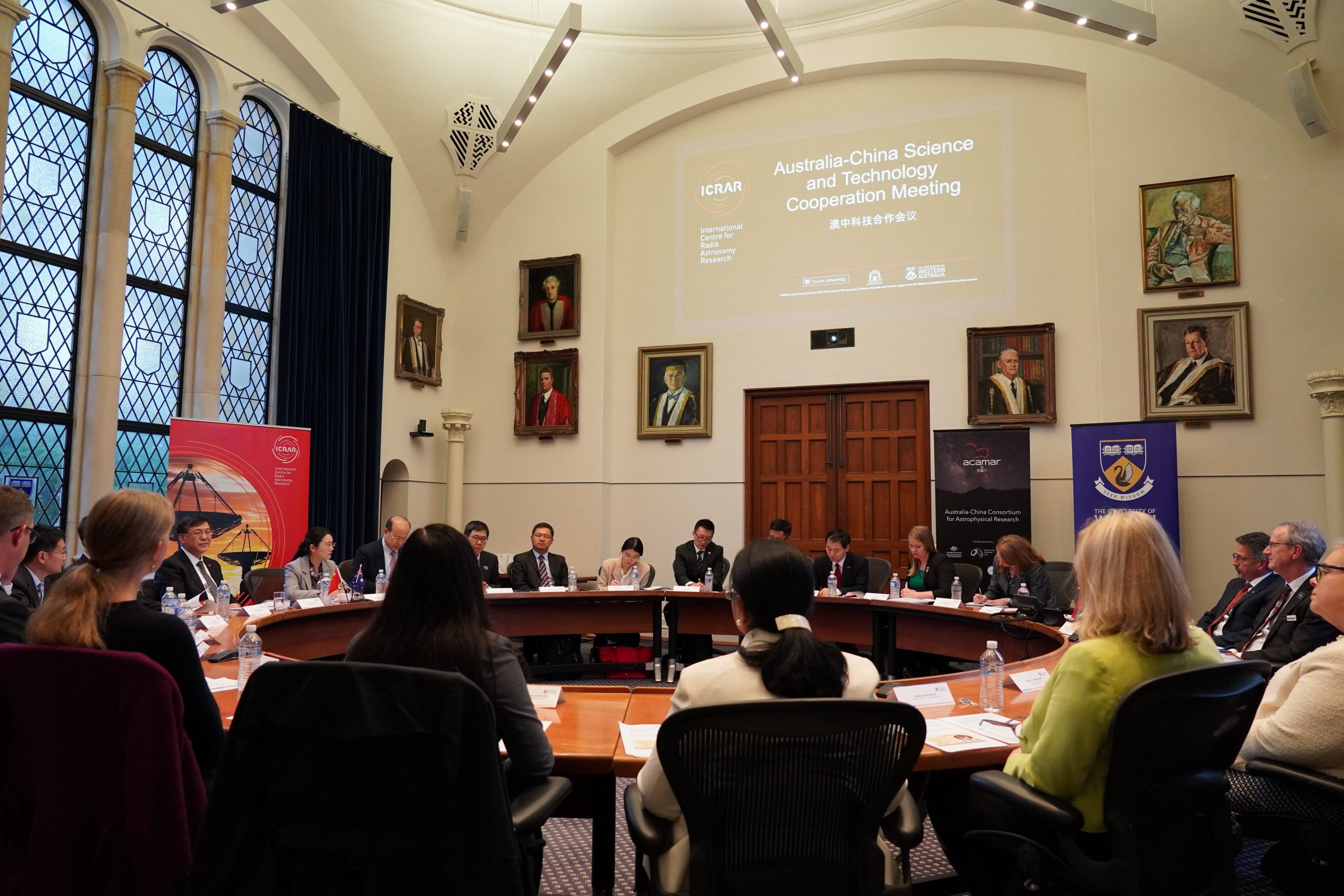A delegation from the Ministry of Science and Technology (MOST) in China and the Chinese Embassy and Consulate recently visited The University of Western Australia (UWA) in Perth. The visit highlighted long-standing collaborations in the fields of science and technology between Australia and China, with a particular focus on the strong relationships built through work in astronomy, astrophysics, and cosmology.
The Chinese delegation included Minister Yin, Director General Mr Dai, and Ambassador Mr Xiao. They were welcomed by the Australian delegation which included the UWA Chancellor and Vice-Chancellor, representatives from the Department of Foreign Affairs and Trade (DFAT), the Department of Jobs, Tourism, Science and Innovation (JTSI), a representative of Premier Cook, the UWA DVC and DVCR, and representatives from the Australian SKA Regional Centre (AusSRC), Astronomy Australia Limited (AAL), the Square Kilometre Array Observatory (SKAO) and the International Centre for Radio Astronomy Research (ICRAR). Professors Simon Ellingsen and Lister Staveley-Smith hosted the meeting on site at UWA.
In his address, Minister Yin highlighted the history and importance of science and technology relations between Australia and China. He focused on some key examples of Australia-China collaboration including the SKAO, ICRAR and the success of ACAMAR. Minister Yin also noted China’s recognition of Nobel Laureate Professor Barry Marshall.
Members of the Australian delegation also spoke, expanding on areas of the Australia-China collaboration. Dr George Heald highlighted the exciting SKAO science made possible by Australia’s relationship with China, and Professor Lister Staveley-Smith spoke about the decade-long ACAMAR program. The event concluded with an exchange of gifts and official photos. The benefit of ongoing cooperation to both countries was clear, as was the importance of science and technology in the relationship.
AAL has operated as the Australian Secretariat for ACAMAR for many years. For more information regarding AAL’s role in ACAMAR, or the ACAMAR program itself, please visit the website or contact AAL Program Manager, Kate Barnard.



